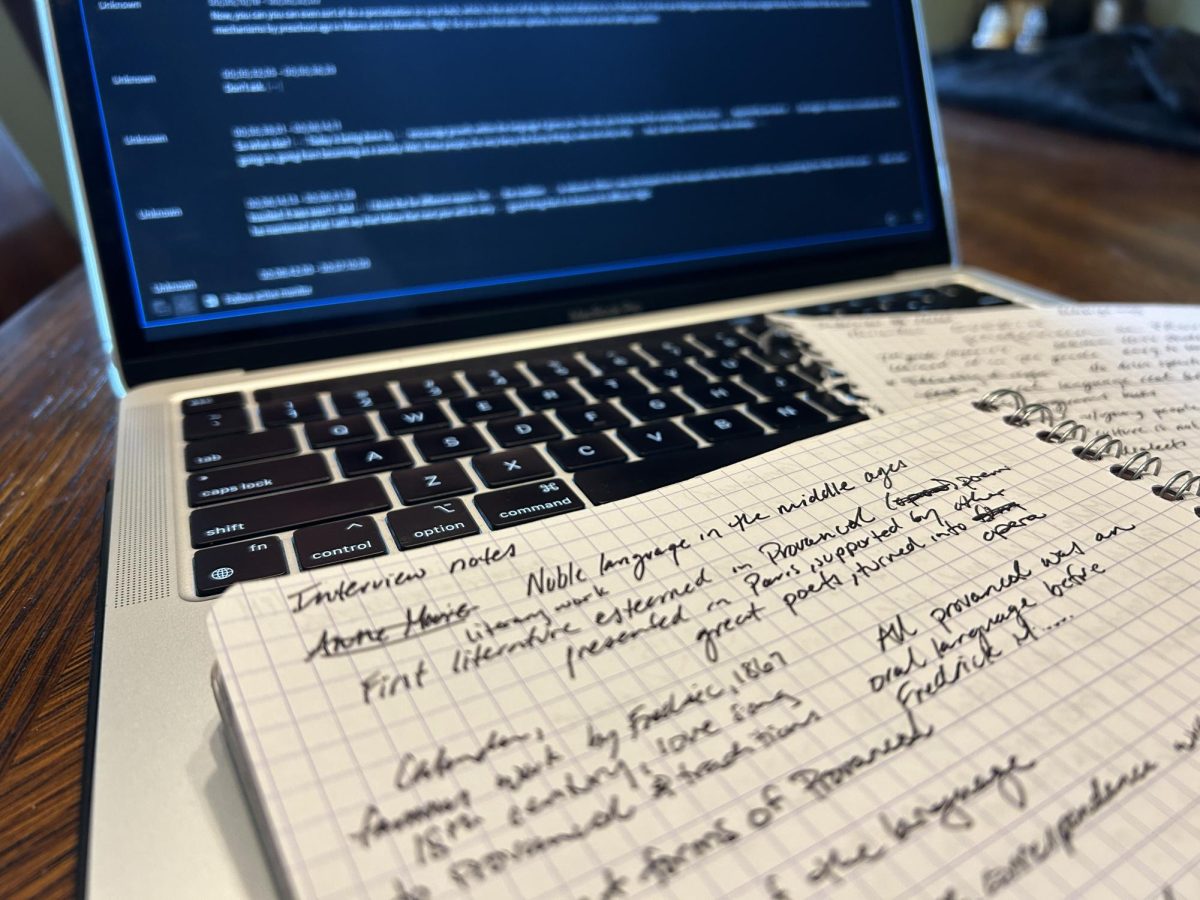Throughout Chatham University’s midterm season, some students have been plummeting into academic overwhelm, and I can’t help but overhear more conversations that involve a plea for forgiveness regarding the use of generative AI in class assignments.
The whispers of “I had to ask ChatGPT,” and “Don’t tell anyone but I ChatGPT’d that,” strike my ears sharper each time.
With every new mention of AI, I’m frustrated more and more. As those who either work at or attend a college, we need to start using our brains, literally and figuratively.
Generative AI is a trap that I try not to fall for, and you shouldn’t either.
It upsets me to see the Chatham community use generative AI for tasks that are well within our range of capacity and actively contributing to problems like climate change and environmental racism. Using AI as either a shortcut or a habit negatively affects our ability to critically think, which in turn disrupts the exact effort it takes for us to learn, according to a study done by the Massachusetts Institute of Technology.
Chatham University’s mission statement says, “Our work in and out of the classroom prizes our core values of sustainability; women’s leadership and gender equity; community engagement; and diversity and inclusion.” In more ways than one, the use of AI goes directly against these core beliefs.
With the progression of AI, there have been increasingly harmful impacts that an everyday user may not notice. For example, technological developments involving AI have led to a trend in the construction of data centers, enormous buildings that are infringing on our communities, as explained by an article by Tech Policy Press. Data centers serve to train, signal and deliver AI services to users. They require advanced computer systems to handle intense demands for AI.
Because of this, these data centers also require vast amounts of energy and water to operate. In order to keep internal servers cool, data centers utilize cooling towers, chillers, pumps, heat exchangers and computer room air handler units.
The huge and visually unappealing warehouses use roughly five million gallons of water each day, according to the Environmental and Energy Study Institute. This amount of water is equivalent to the water use of a town populated by 10,000-50,000 people.
Marginalized communities are also being impacted at a higher rate due to a new wave of environmental racism being brought on by data centers.
Originally coined by civil rights activist Dr. Benjamin F. Chavis Jr, the World Economic Forum cites his definition of environmental racism as, “racial discrimination in environmental policy-making, the enforcement of regulations and laws, the deliberate targeting of communities of colour for toxic waste facilities, the official sanctioning of the life-threatening presence of poisons and pollutants in our communities, and the history of excluding people of colour from leadership of the ecology movements.”
Environmental racism isn’t new and has existed before the birth of AI – a more well-known example being the water crisis that began in 2014 in Flint, Michigan. Data center construction also has deep connections to redlining, the act of cutting off those lower income communities of color to necessary resources, and in effect creating food deserts, bad infrastructure and environmental dangers.
Intersectionality between class, race, the environment and technology advancements is critical to understand because there is more to AI use than what meets the eye. These technological developments are affecting climate change, discrimination and contributing to the depletion of natural resources, as well as the depletion of our own education.
With that being said, it isn’t as easy to swear off AI as one may think. As this technology continues to grow in popularity, it seems that every online tool has some new version of AI applied. Grammarly, Google, Instagram and more all utilize AI in some way.
As easy as it would be to keep using these tools, the internet is vast, and so are its resources. While some AI tools are increasingly difficult to disable or turn off, such as Google’s “AI overview” feature, many others can either not be engaged with or turned off.
It is easier said than done to simply not engage with AI in any way, but it is still important to consider the people and resources around us. Chatham’s Writing Center is free of charge and available for students in search of academic help. Additionally, University counseling is available for full-time students.
At the end of the day, to attend this University, students must pay some amount of tuition. In an institution where we pay to receive an education, it is fair to say that we should be doing the work required to get this education, especially at a University that holds sustainability and equity as two of its core beliefs.
Inconvenience is the price we should be willing to pay for our planet and for our futures.



